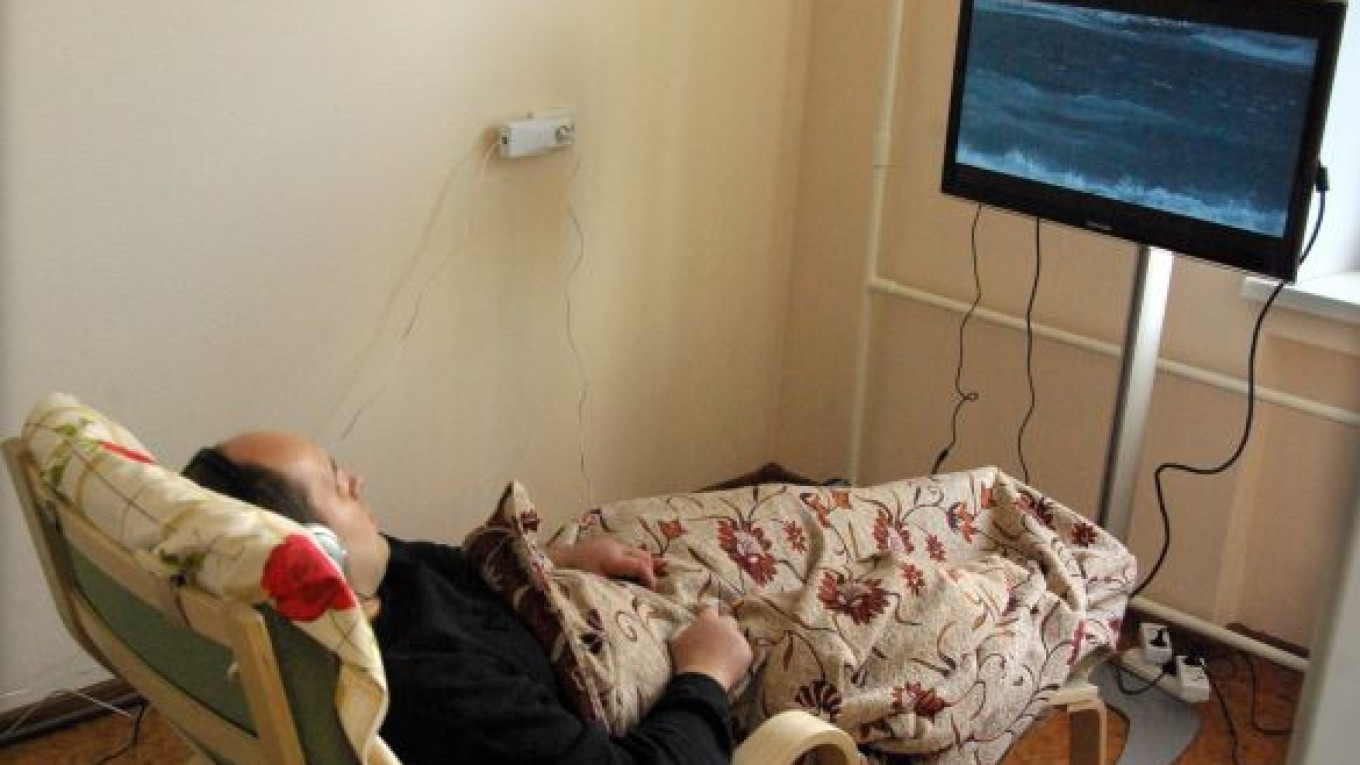Adult alcoholism has been on the decline in Russia for the past six years, a success officials said Wednesday came as the "result of the policies of authorities."
However, the number of teenagers who drink too much has been rising during the same period, Yelena Koshkina, head of a narcology research institute at the Health and Social Development Ministry, said at a Moscow news conference.
In its report, the institute found that alcoholism rates among men, as well as the number of cases of alcohol-related psychosis, had dropped in Russia between 2004 and 2010.
The study showed that 2,560 adult men and 550 women per 100,000 suffered from alcoholism in 2010, the latest year for which data was available, compared with 2,950 men and 540 women per 100,000 people in 2004.
There were just 71 recorded cases of alcohol-related psychosis per 100,000 people in 2010, down from 95 people per 100,000 in 2004.
The teenage alcoholism and alcohol-related psychosis cases had dipped to 26 per 100,000 in 2010 from 44 per 100,000 in 2004.
But the report found that 1,962 teenagers out of every 100,000 misused alcohol in 2010, up from 1,270 teenagers in 2004, though not to the extent of qualifying as alcoholics.
The report did not analyze social circumstances leading to alcoholism in Russia, but said the average drinker was a male city resident aged 20 to 59. The general belief is that Russians drink because of poverty and the cold climate.
Koshkina said the rehabilitation of alcoholics was "not very developed." Russia abolished the forced treatment of alcoholics in 1994.
But a tour of the research institute gave a glimpse of the top level of care available in Russia today.
The state facility boasted a three-star hotel, with spotless rooms and new televisions in every ward — all free of charge.
One available therapy is relaxing musical and video sessions, in which the patient lies on a couch and a doctor controls the atmosphere. Another kind of therapy involves lying in a vibrating oxygen capsule while listening to music. Both are aimed at relaxation and taking the patient's mind off alcohol.
In December 2009, the government established a state policy for fighting alcoholism between 2010 and 2012.
In some regions, the police called for banning alcohol sales at night, at mass events, near schools and to minors, but Koshkina said such calls are "often not followed," although recently "control of their fulfillment is being reinforced."
Starting in 2013, state programs aimed at "forming" healthy lifestyles, "efficiently preventing" alcoholism and detecting alcohol-related illnesses in time will be implemented.
Russia lost 7.7 million people in alcohol-related deaths, including those caused by alcohol-related illnesses and alcohol poisoning, between 1999 and 2007.
More than 2.5 million Russians, or 1.8 percent of the population, applied for alcoholism treatment last year.
But according to polls, 20 percent of Russians admit that they either "misuse alcohol" or are "addicted" to it, while another 32 percent consider themselves to be "drinking moderately," Koshkina's report said.
Another 38 percent say they drink to mark holidays and only 9.7 percent say they do not drink.
A Message from The Moscow Times:
Dear readers,
We are facing unprecedented challenges. Russia's Prosecutor General's Office has designated The Moscow Times as an "undesirable" organization, criminalizing our work and putting our staff at risk of prosecution. This follows our earlier unjust labeling as a "foreign agent."
These actions are direct attempts to silence independent journalism in Russia. The authorities claim our work "discredits the decisions of the Russian leadership." We see things differently: we strive to provide accurate, unbiased reporting on Russia.
We, the journalists of The Moscow Times, refuse to be silenced. But to continue our work, we need your help.
Your support, no matter how small, makes a world of difference. If you can, please support us monthly starting from just $2. It's quick to set up, and every contribution makes a significant impact.
By supporting The Moscow Times, you're defending open, independent journalism in the face of repression. Thank you for standing with us.
Remind me later.


